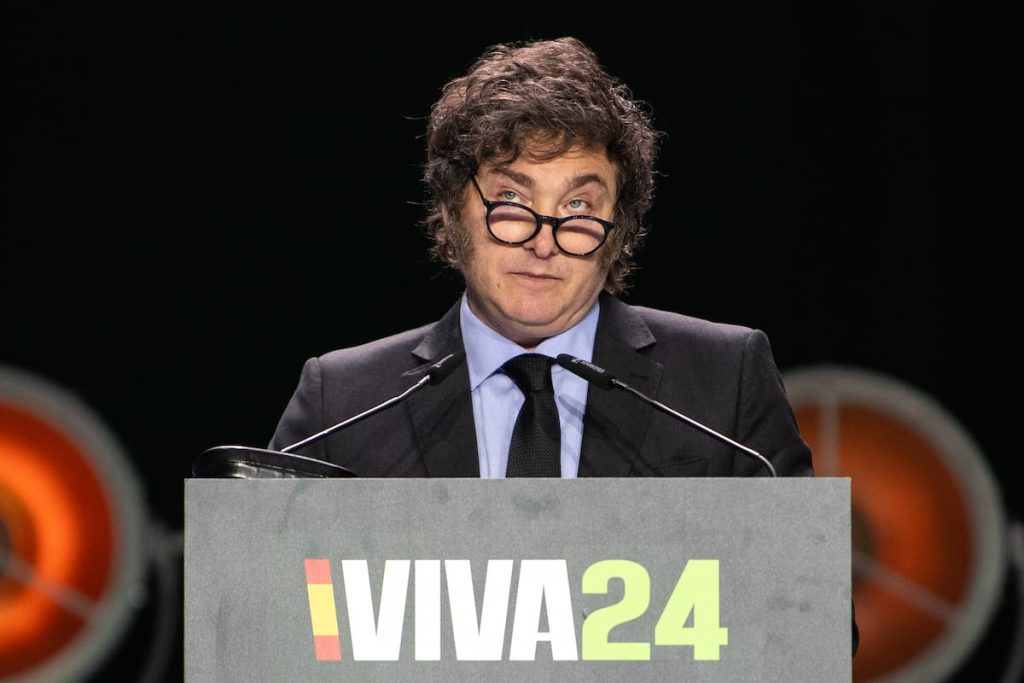Spain and Argentina have resumed dialogue channels despite the diplomatic crisis that erupted after President Javier Milei attacked the wife of the Spanish Prime Minister, Pedro Sánchez, in Madrid. The Spanish Foreign Minister, José Manuel Albares, had the first phone conversation with his Argentine counterpart, Diana Mondino, since Spain recalled its ambassador in Buenos Aires. Both ministers will meet at the end of September at a breakfast of Ibero-American chancellors on the sidelines of the UN General Assembly in New York, although it is not yet known if they will take the opportunity to have a bilateral meeting. Sources familiar with the conversation indicated that, at the initiative of the Argentine chancellor, it took place in a “cordial tone” and during it, the ministers discussed the conflict in the Middle East, among other issues.
The dialogue took place in a context of coincidences between the two diplomacies in various multilateral forums: Spain and Argentina signed a declaration released last Friday in Santo Domingo, where twenty countries urged the Maduro regime to cease repression and disclose the minutes of the recent Venezuelan elections. All the Ibero-American chancellors, including the Argentine, approved that the XXX summit of this community in 2026 will be held in Spain. However, there is still a long way to go for the full normalization of relations, which will only occur when Spain appoints a new ambassador to Argentina, after the consul Maria Jesús Alonso Jiménez was called back to Madrid following the crisis.
The triggering factor of the crisis were Milei’s comments at a pre-election rally held by Vox in Madrid’s Vistalegre square, where he said Pedro Sánchez had a “corrupt wife.” This led to further escalations of insults, including calling the Spanish Prime Minister a “coward.” The withdrawal of the ambassador is one of the harshest diplomatic protest measures. However, the Argentine chancellor downplayed the importance of the crisis with Spain, calling it an “anecdote” and an “internal and political” matter that did not affect relations between the two societies, as she stated at an event with businessmen in Buenos Aires. Milei returned to Madrid in June, where he was awarded by the regional president, Isabel Díaz Ayuso, and continued to criticize Sánchez.
One of the obstacles to full normalization is the unpredictable nature of the Argentine president. His latest outburst occurred on the past day 6, when, in response to the graffiti made by an environmentalist group at the house of footballer Lionel Messi in Ibiza, he wrote on social media: “In Spain, the communists who want to ‘kill the rich and abolish the police to end climate change’ vandalized the house of Lionel Messi and his family. I stand in solidarity with the Messi family for this cowardly and delusional incident and I ask the government of Pedro Sánchez to ensure the safety of Argentine citizens living in the Kingdom of Spain.” The chilly relations between the governments led to Milei and Sánchez avoiding each other at the international forum on peace in Ukraine held in Switzerland on July 16.
Both governments have reasons to try to prevent their political and ideological differences from affecting bilateral relations: Spain is the second largest foreign investor in Argentina (with a cumulative stock of 18 billion euros) and the Spanish colony in that country is the largest in the world (482,176 citizens). They will face the challenge of overcoming their differences at upcoming summits in November, such as the G-20 in Rio de Janeiro, Brazil, and the Ibero-American Community in Cuenca, Ecuador. Despite the tensions, the economic and social ties between the two countries provide strong motivations for constructive dialogue and cooperation.















